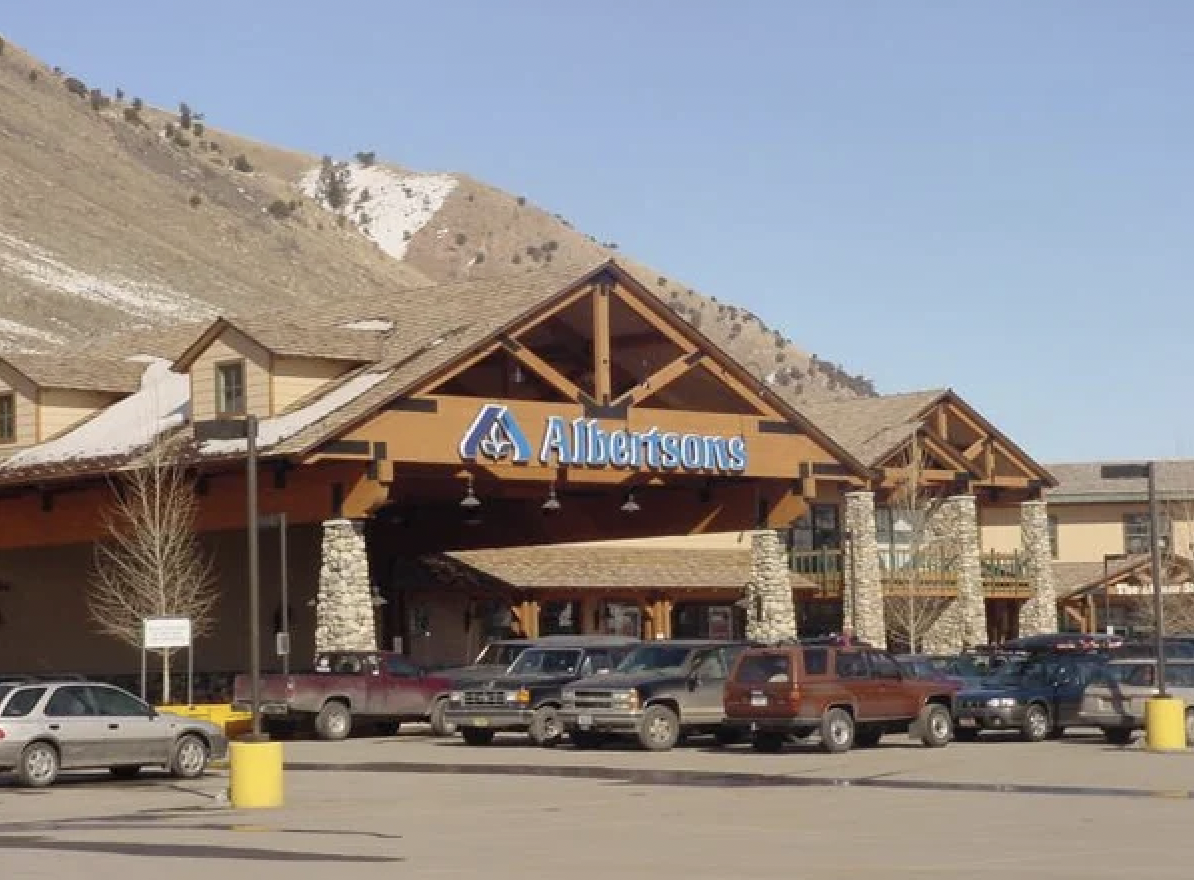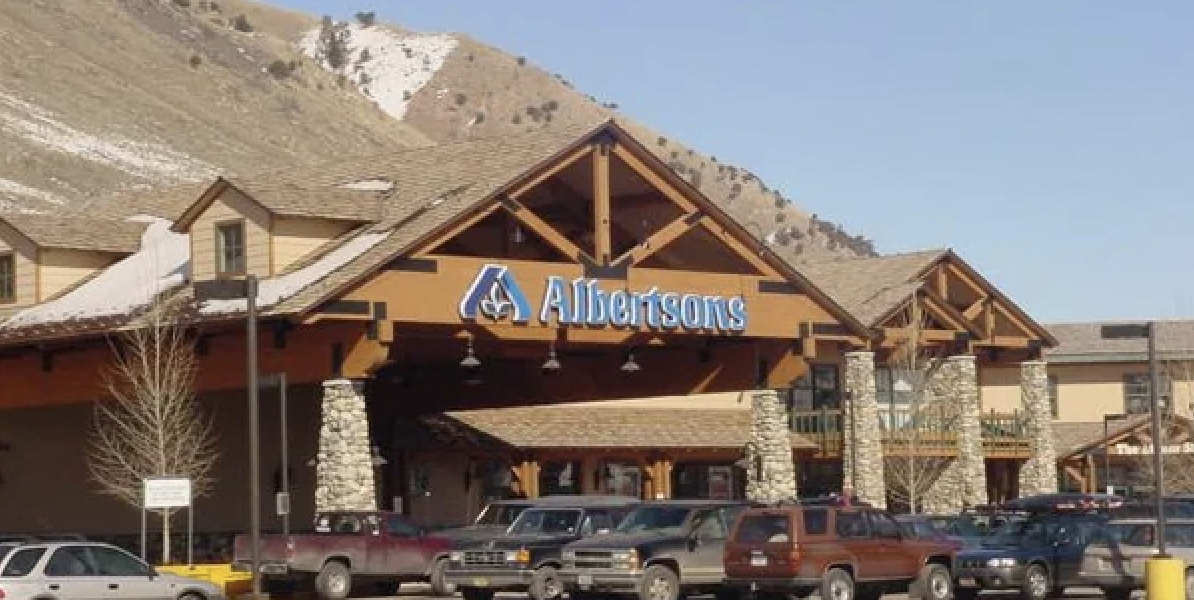
• Regulators fear merger of Albertsons, Kroger chains would reduce competition
By Phil Ellsworth
Casper Star-Tribune
Via- Wyoming News Exchange
CASPER — A proposed merger that could have a major impact on Wyoming’s grocery landscape is headed to court.
The Federal Trade Commission filed a lawsuit in February to stop the merger and the attorneys general in eight states, including Wyoming, have joined the FTC to stop the merger. If supermarket giant Kroger, parent of Smith’s and King Soopers, is allowed to purchase Kroger, Casper’s Albertsons store would be one of 579 Kroger and Albertsons stores to be sold to a third company, C&S Wholesale Grocers, as part of the $24.6 billion deal.
Five stores in Wyoming would be sold to C&S:
- Albertsons — 1076 CY Ave, Casper
- Albertsons — 3355 E Pershing Blvd, Cheyenne
- Albertsons — 2610 S Douglas Hwy, Gillette
- Albertsons — 105 Buffalo Way, Jackson
- Albertsons — 1323 Dewar Dr, Rock Springs
The other states that have joined the lawsuit are Arizona, California, Illinois, Maryland, Nevada, New Mexico and Oregon, along with the District of Columbia.
The lawsuit contends that the proposed deal is the largest supermarket merger in U.S. history and would eliminate competition for customers and workers between the two grocery giants.
“If allowed to proceed, the merger would result in higher grocery prices for millions of Americans and lower wages and benefits for hundreds of thousands of grocery workers,” the lawsuit claims. “The proposed acquisition is also a threat to hundreds of thousands of grocery store workers. Today, Kroger and Albertsons are two of the largest union employers in the country. Each negotiates separately with the unions that represent its workers, and the unions have a long history of leveraging respondents against each other to obtain higher wages and better benefits for workers.”
The state of Colorado also filed a lawsuit in February to stop the merger.
On Thursday, the court ruled for the merger to be put on pause until a final decision was made.
The attorneys general of Arizona, California, the District of Columbia, Illinois, Maryland, Nevada, New Mexico, Oregon and Wyoming all joined the FTC’s lawsuit on the commission’s side.
Related lawsuits are proceeding in Colorado and Washington state.
Cincinnati-based Kroger operates 2,800 stores in 35 states, including stores like Ralphs, Smith’s and Harris Teeter.
Albertsons, based in Boise, Idaho, operates 2,273 stores in 34 states, including Safeway, Jewel Osco and Shaw’s. The companies currently employ around 710,000 people.
The grocery industry is now dominated by four players: Walmart, Kroger, Costco and Albertsons.
If allowed to combine, Kroger and Albertsons would account for around 13% of U.S. grocery sales.
Walmart, Kroger and Costco generated about half of the $1 trillion in U.S. grocery sales in 2023.
Regulators argue that fewer grocery stores means less competition and less incentive for companies to lower prices, which have jumped more than 21 percent since August 2020.
According to the White House Council of Economic Advisers, the major national chains have been operating at the highest profit margins on groceries in two decades.
C&S Wholesalers, which supplies independent grocery stores, owns about two dozen supermarkets under the Piggly Wiggly and Grand Union banners.
The FTC lawsuit says C&S appears ill-suited for the task, and testimony from C&S executives revealed the company was already losing millions of dollars on those stores every year. One executive, in communications shown in court, referred to the stores that C&S would take over as Kroger’s “worst chains.”
When Albertsons acquired Safeway in 2015, it sold dozens of stores to a third company, but that company went bankrupt within months.
Kroger says the merger will result in lower prices and higher wages.
“Only global, non-unionized giants like Walmart, Amazon and Costco will benefit from this deal being blocked,” the company said in a statement.
Regulators have argued the merger will make it easier for Kroger to close stores where workers are unionized and reopen them as non-union stores.
The Stop the Merger Coalition, led by United Food and Commercial Workers International Union Locals 7, 324, 400, 770, 1564 and 3000, represents over 100,000 Kroger and Albertsons workers in a dozen states across the country.
“The evidence that came out in the federal trial clarified what we already knew — this proposed mega-merger would harm workers and shoppers, and we cannot trust anything the CEOs of Kroger and Albertsons say unless it is legally binding,” a statement by the group said. “The corporations admitted under oath, despite repeated comments to the public and media to the contrary, that some stores may close after a merger, prices may not actually go down after a merger, and claims they have made to protect union jobs are not legally enforceable.”
Walmart is the nation’s top grocer, accounting for about a quarter of the nation’s grocery sales in 2023 totaling approximately $505 billion. Kroger was second with roughly $148 billion in sales, followed by Costco and Albertsons.





